Clancy Tucker's Blog, page 261
April 22, 2015
23 April 2015 - JASON NAHRUNG - Guest Journalist
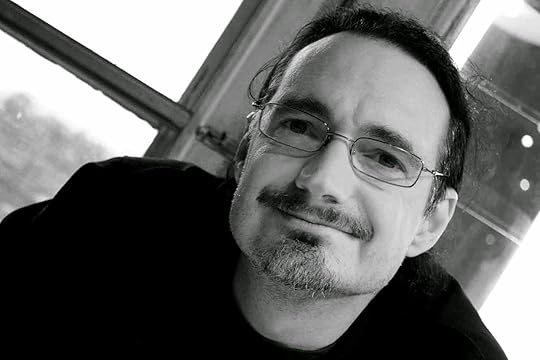
JASON NAHRUNG
- Guest Journalist -
G'day folks,
Today, I introduce and interview an Australian journalist, photographer and author - Jason Nahrung.
Welcome, Jason ...
1. TELL US A LITTLE ABOUT YOUR WRITING JOURNEY.
I’ve always been a writer; it was a natural pairing with being a voracious and perhaps a tad precocious reader as a child. I only got serious about getting published when I moved to Brisbane in the late ’90s and was able to access the Queensland Writers Centre’s programs – a workshop with Kim Wilkins was particularly inspiring – and also the Vision writers group, a wonderful critique and support network for speculative fiction writers that’s still going. My then girlfriend and I wrote a novella, turn by turn, when we were living states apart, and I later turned that into the novel that became The Darkness Within, my first published long fiction (Hachette, 2007). I now have more than 20 short stories under my belt, as well as the novels Salvage(Twelfth Planet Press, 2012) and this year’s outback vampire duology with Clan Destine Press: Blood and Dust (originally published digitally by Xoum in 2012) and The Big Smoke.
In terms of non-fiction, I’ve been a newspaper journalist for about 25 years, and have provided numerous interviews and articles, as well as reviews of books, movies, live entertainment and travel experiences, for newspapers and magazines in that time.
I’m also the editor of Writing Queensland, the newsletter of the Queensland Writers Centre. So in some ways, my writing journey has turned a circle.
2. WHEN AND HOW DID YOU BECOME A JOURNALIST? WHAT INSPIRED YOU?
I started work as a newspaper journalist in 1989, a year after I finished university where I studied, among other things, journalism. It was a job that opened up – not always easy to find in rural Queensland – at the right time, and one where I could use my skills and, I hoped, do some good. I haven’t operated as a reporter for many years – I found sub-editing a more comfortable fit.
3. WHAT DO YOU ENJOY MOST ABOUT BEING A JOURNALIST?
There is a feeling of being part of society – an important part of it, despite our current professional environment and challenges. I do believe a healthy democracy needs the fourth estate. Also, the deadline pressure lets you know you’re alive some nights; it really brings the team together.
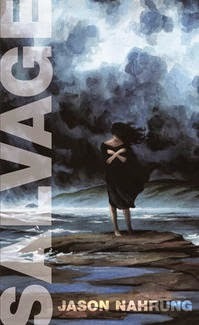
4. WHAT IS THE HARDEST THING ABOUT BEING A PROFESSIONAL WRITER?
Paying the bills! Certainly as a writer of fiction, but I’m told the freelance environment is also pretty darn tough these days, too, as markets lessen and tighten.
5. WHO IS YOUR FAVOURITE AUTHOR AND WHY?
William Gibson – I’ve read and greatly enjoyed The Peripheral, so he’s top of mind at the moment – is one of the writers whose work I will buy without first cracking open the cover. His characterisation is spectacularly good – right up there with Stephen King – and his plotting a treat. He isn’t afraid to reveal details as part of a natural process – I love he is able to not tell the reader everything at once, and has writing of sufficient assuredness for the reader to continue unflustered. I enjoy the futurist element to his work, as well, and how it’s incorporated into the world so seamlessly.
Here’s a shout out to a few of the Australian authors I buy without bothering to consider the blurb: Kim Wilkins and Alison Goodman, who are narrative geniuses (amongst other things); Glenda Larke, whose fantasy worldbuilding is second to none; and Kirstyn McDermott, whose dark tales are beautifully told and get into your psyche, like blood into this chalk ...
And I’ve got to mention Bram Stoker: Dracula was given to me in high school, and it’s had me hooked on the Gothic, and vampires, ever since. Thanks, Brinky!
6. DO YOU WORK AS PART OF A TEAM, FREELANCE OR BOTH?
My writing career, such as it is, is broken into a few streams at this time. There’s the newspaper journalism; there’s the editorship for QWC, which has involved writing interviews and articles; there’s occasional proofreading for a publisher, and stray bits of manuscript assessment. I’ve been privileged to work as a mentor with the Australian Horror Writers Association. And I’m pursuing further works of short and long fiction, not all related to the PhD. One of the neat things about getting something published, particularly fiction, is working with the editor and publisher to craft that story into its final state, to make it as good as it can be within the limits of the available resources.
7. WRITERS ARE SOMETIMES INFLUENCED BY THINGS THAT HAPPEN IN THEIR OWN LIVES. ARE YOU BY THE STORIES YOU COVER?
I don’t cover stories these days, but I’m certainly exposed to a wide array of events on the subs’ desk. It’s healthy for a writer to be open to a lot of influences – to read a variety of genres, non-fiction as well as fiction and poetry and points between and beyond. I’ve tapped events and feelings from my own life, and it’s not unusual for news stories to seep into my fiction to some extent – sometimes years later. Writers want to be bower birds, collecting all manner of shiny things, because you never know which two (or more) of those things are going to come together and make a story.

8. HAVE YOU WON ANY PRIZES OR AWARDS?
A couple, at low level in the fiction world, and I’ve had some short-listings that have made me happy.
9. WHAT DID THEY MEAN TO YOU?
Awards are a nice pat on the back, but you don’t let them get to you – either winning or losing, or being overlooked. Being a finalist is very neat – it means a few people like your work, and they like it a lot! But these things are often selective and subjective. For instance, stories I’ve thought the weakest in an anthology have bobbed up on recommended reading lists and awards short-lists. My feeling is, take it where you can get it, but don’t judge yourself too harshly using awards as a measure. If you’re going to be a writer, it’s about expectations management – hope for the best, sure, but stay grounded.
10. WHAT WOULD YOU SAY IF YOU HAD AN OPPORTUNITY TO SPEAK TO WORLD LEADERS?
Do you lot think you could maybe do what’s good for everyone trying to get by on this planet instead of making policy based solely on self-interest and corporate selfishness?
11. WHAT ARE YOUR PLANS / ASPIRATIONS FOR THE FUTURE?
I’m starting a PhD through research in creative writing this year, so that’s my immediate objective. I’m looking forward to investigating climate change and writing about a possible future within that context, as well as further exploring my creative writing process. After that? To live comfortably, keep travelling, pay off the mortgage, write some stories, be as happy as I can be and help others where I can.
12. DO YOU THINK PRINT NEWSPAPERS ARE SERIOUSLY CHALLENGED BY THE INTERNET? HOW?
Absolutely. The punters like their free news and aren’t too fussy about where they get it from. Newspapers – some more than others – have abandoned the high ground of quality, balanced journalism as they mistake clicks for effectiveness. They also face the problem of monetising the internet – advertising revenue drives newspapers, and it’s hard to come by online.
13. WHO OR WHAT HAS INFLUENCED YOU IN YOUR WORK?
Coming up through newspapers, back in the day, I was fortunate to have editors and sub-editors had the time and the access (we were all in the same room, a mere shout away) to impart some wisdom. That focus on a well-crafted, economically told, emotionally neutral story has served me well, even if I had to learn to loosen up and get emotional in my fiction!
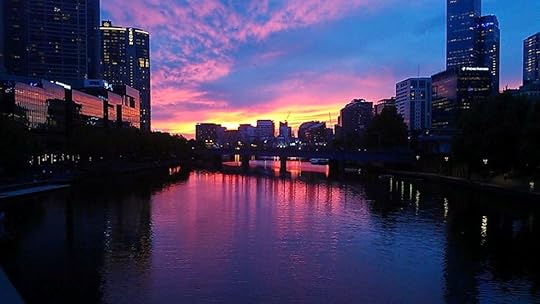
14. DO YOU TAKE PHOTOGRAPHS TOO?
Coming up through regional media, you learn to do all things, and taking photos was one of them. I’ve always enjoyed photography – my nana gave me a point-and-shoot when I was just a nipper, and I bought my first SLR when I was in high school (a Minolta X-300, if anyone needs a body or two!). I still dabble with a digital SLR, not as much as I’d like. It’s an asset for freelancers to be able to take useful pictures to provide with their copy, especially from obscure locations or specific events that photo libraries might not cover well.
Bio on Jason:
Jason Nahrung grew up on a Queensland cattle property and now lives in Ballarat with his wife, the writer Kirstyn McDermott. He works as an editor and journalist to support his travel addiction. His fiction is invariably darkly themed, perhaps reflecting his passion for classic B-grade horror films and ’80s goth rock. His most recent long fiction title is the Gothic tale Salvage (Twelfth Planet Press), with his outback vampire duology Blood and Dust and The Big Smoke coming soon through Clan Destine Press.
VIDEO:
https://www.youtube.com/watch?v=s2Et6z3oSpU
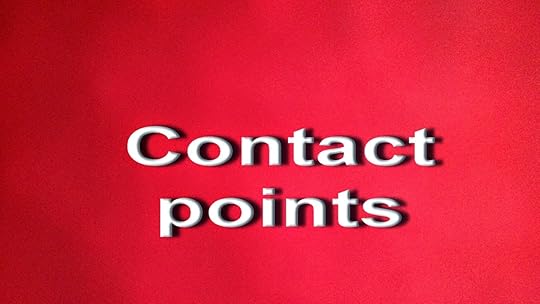
Jason lurks online at:
www.jasonnahrung.com.
 Clancy's comment: Thank you, Jason. Good luck with your investigations on climate change. Keep writing ...I'm ...
Clancy's comment: Thank you, Jason. Good luck with your investigations on climate change. Keep writing ...I'm ...
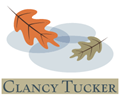
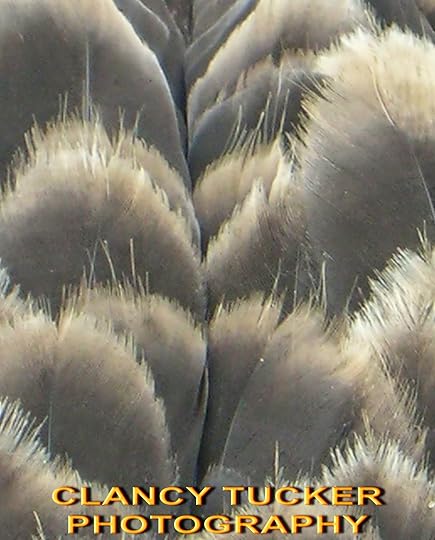
Published on April 22, 2015 04:36
April 21, 2015
22 April 2015 - TOM UREN - A Force in Australian Labor
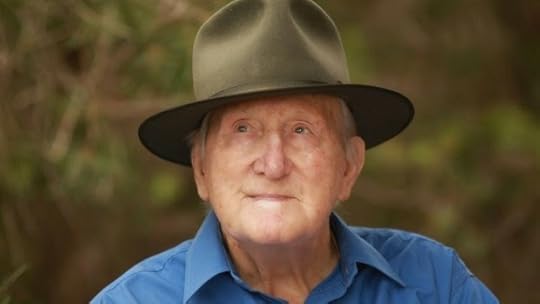
TOM UREN - A Force in Australian Labor -
G'day folks,
One of the most influential men in Australian politics died recently at 93. Who was he, and what did he do? Thomas "Tom" Uren AC was a Deputy Leader of the Australian Labor Party. Uren helped establish the heritage and conservation movement in Australia and, in particular, worked to preserve the heritage of inner Sydney.
Tom Uren, "the conscience of Parliament", is one of the best-known and most-respected Labor politicians of his generation. As a minister in two governments he knew what it was like to hold the reins of power, yet he never lost the sense of justice and fair play that has driven him through an eventful life.
Born in the working class suburb of Balmain in the 1920s, Uren encountered the poverty of the Depression first-hand with an unemployed father and a mother who worked as a barmaid.
Uren's response was to fight, literally-he trained as a boxer and had hopes of pursuing a career as a professional fighter, but his plans were derailed by the outbreak of World War Two. Uren enlisted and was sent to Timor where, fighting against overwhelming odds, he and his comrades were taken prisoner.
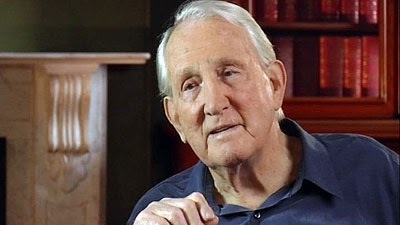
The following dark years saw him suffer the brutality of the Burma-Thai Railway, then a spell in Japan itself. It was this later period that formed his undying belief that it was militarism and not the Japanese people who were to blame for the war and its terrible atrocities. His wartime experiences instilled in him a lifelong opposition to militarism and fascism and a belief in socialism and peaceful co-existence.
Returning home at war's end, Uren aimed to go back into the fight game but after a decisive defeat in England, he gave up the idea. He went to work as a manager at Woolworths and at the same time joined the Australian Labor Party. His energy and commitment quickly took him to the top of the Left faction of the party. Uren entered Federal Parliament in 1958.
With the election of the Whitlam Government in 1972, he became Minister for Urban and Regional Development and initiated many reforms, saving suburbs from freeways and redevelopment and creating new national parks. In 1975 he set up the Australian Heritage Commission and the National Estate.
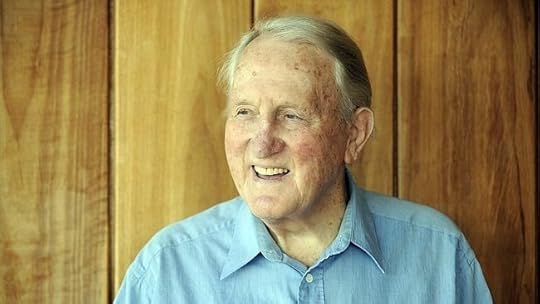
After serving a second term of office as a minister in the Hawke Government, Uren retired from politics in 1990. He published his highly acclaimed biography Straight Left in 1994.
SUMMARY
He was a prisoner of war, a parliamentarian, a minister, a deputy leader of his party and served our country throughout his adult life.
He was an aspiring boxer and outstanding athlete who joined the army at the age of 20 and deployed to Timor.
He spent his 21st birthday – and the following three – as a prisoner of war.
He suffered the brutality of the Burma-Thai Railway and he witnessed from afar the atomic bomb on Nagasaki.
Despite these experiences, he rejected hatred.
Tom Uren devoted his life to serving what he called ‘the human family’.
He taught a generation of Australians to forgive and to forge new friendships with our former enemy.
In 1958, he entered the Federal Parliament as the Member for Reid and represented the electorate for 31 years.
He became Minister for Urban and Regional Development in the Whitlam Government, and pioneered the protection of Australia’s historic and natural heritage.
He also served as a minister in the first two Hawke Governments.
When Mr Uren retired from Parliament in 1990, he was the Father of the House.
He remained an active conservationist after leaving parliament and was a strong supporter of the Sydney Harbour Federation Trust established by the Howard Government.
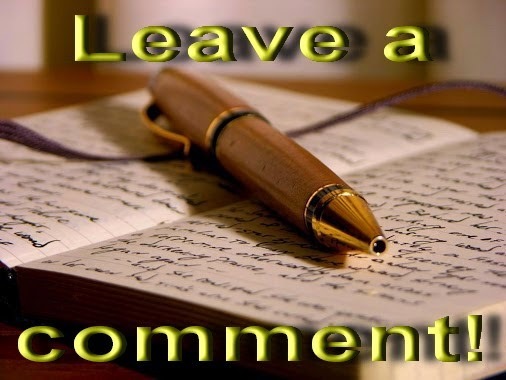
Clancy's comment: A mountain of a man.
I'm ...


R.I.P
Published on April 21, 2015 04:20
April 20, 2015
21 April 2015 - WRITING TIPS FROM THOSE WHO KNOW

WRITING TIPS FROM THOSE WHO KNOW
G'day folks,
Time for some more tips from those who have been there. Writing success boils down to hard work, imagination and passion—and then some more hard work. iUniverse Publishing fires up your creative spirit with 20 writing tips from 12 bestselling fiction authors.
Use these tips as an inspirational guide—or better yet, print a copy to put on your desk, home office, refrigerator door, or somewhere else noticeable so you can be constantly reminded not to let your story ideas wither away by putting off your writing.
Tip1: "My first rule was given to me by TH White, author of The Sword in the Stone and other Arthurian fantasies and was: Read. Read everything you can lay hands on. I always advise people who want to write a fantasy or science fiction or romance to stop reading everything in those genres and start reading everything else from Bunyan to Byatt." — Michael Moorcock
Tip 2: "Protect the time and space in which you write. Keep everybody away from it, even the people who are most important to you." —Zadie Smith
Tip 3: "Introduce your main characters and themes in the first third of your novel. If you are writing a plot-driven genre novel make sure all your major themes/plot elements are introduced in the first third, which you can call the introduction. Develop your themes and characters in your second third, the development. Resolve your themes, mysteries and so on in the final third, the resolution." — Michael Moorcock
Tip 4: "In the planning stage of a book, don't plan the ending. It has to be earned by all that will go before it." — Rose Tremain
Tip 5: "Always carry a note-book. And I mean always. The short-term memory only retains information for three minutes; unless it is committed to paper you can lose an idea for ever." — Will Self

Tip 6: "It's doubtful that anyone with an internet connection at his workplace is writing good fiction." — Jonathan Franzen
"Work on a computer that is disconnected from the internet." — Zadie Smith
Tip 7: "Interesting verbs are seldom very interesting." — Jonathan Franzen
Tip 8: "Read it aloud to yourself because that's the only way to be sure the rhythms of the sentences are OK (prose rhythms are too complex and subtle to be thought out—they can be got right only by ear)." — Diana Athill
Tip 9: "Don’t tell me the moon is shining; show me the glint of light on broken glass." – Anton Chekhov
Tip 10: "Listen to the criticisms and preferences of your trusted 'first readers.'" — Rose Tremain
Tip 11: "Fiction that isn't an author's personal adventure into the frightening or the unknown isn't worth writing for anything but money." — Jonathan Franzen
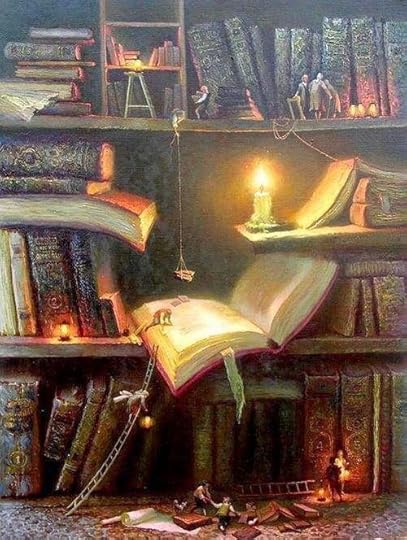
Tip 12: "Don't panic. Midway through writing a novel, I have regularly experienced moments of bowel-curdling terror, as I contemplate the drivel on the screen before me and see beyond it, in quick succession, the derisive reviews, the friends' embarrassment, the failing career, the dwindling income, the repossessed house, the divorce . . . Working doggedly on through crises like these, however, has always got me there in the end. Leaving the desk for a while can help. Talking the problem through can help me recall what I was trying to achieve before I got stuck. Going for a long walk almost always gets me thinking about my manuscript in a slightly new way. And if all else fails, there's prayer. St Francis de Sales, the patron saint of writers, has often helped me out in a crisis. If you want to spread your net more widely, you could try appealing to Calliope, the muse of epic poetry, too." —Sarah Waters
Tip 13: "The writing life is essentially one of solitary confinement – if you can't deal with this you needn't apply." — Will Self
Tip 14: "Be your own editor/critic. Sympathetic but merciless!" — Joyce Carol Oates
Tip 15: "The reader is a friend, not an adversary, not a spectator." — Jonathan Franzen
Tip 16: "Keep your exclamation points under control. You are allowed no more than two or three per 100,000 words of prose. If you have the knack of playing with exclaimers the way Tom Wolfe does, you can throw them in by the handful." — Elmore Leonard
Tip 17: "Remember: when people tell you something's wrong or doesn't work for them, they are almost always right. When they tell you exactly what they think is wrong and how to fix it, they are almost always wrong." — Neil Gaiman
Tip 18: "You know that sickening feeling of inadequacy and over-exposure you feel when you look upon your own empurpled prose? Relax into the awareness that this ghastly sensation will never, ever leave you, no matter how successful and publicly lauded you become. It is intrinsic to the real business of writing and should be cherished." — Will Self
Tip 19: "The main rule of writing is that if you do it with enough assurance and confidence, you're allowed to do whatever you like. (That may be a rule for life as well as for writing. But it's definitely true for writing.) So write your story as it needs to be written. Write it honestly, and tell it as best you can. I'm not sure that there are any other rules. Not ones that matter." — Neil Gaiman

Tip 20: "The nearest I have to a rule is a Post-it on the wall in front of my desk saying ‘Faire et se taire’ (Flaubert), which I translate for myself as ‘Shut up and get on with it.’" — Helen Simpson
Even famous authors sometimes have a tough time with writing; they also go through periods of self-doubt. Despite this, they always manage to come up with the goods. So take a lesson from them and stop putting off your writing plans and get started on your publishing journey today.
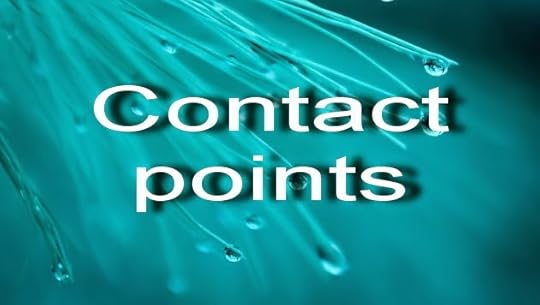
http://www.iuniverse.com/

Clancy's comment: Thank you to iUniverse for these. I hope they inspired you.
I'm ...
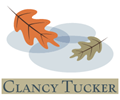
Think about this!
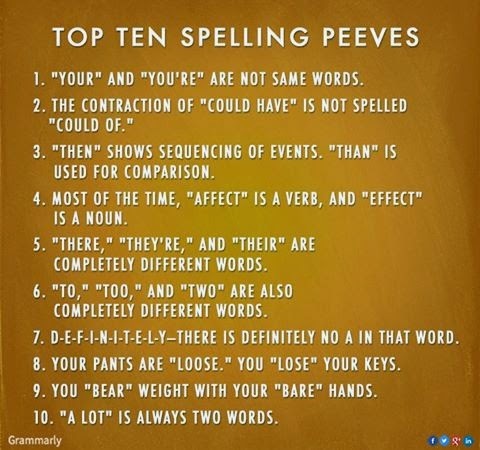
Published on April 20, 2015 06:28
April 19, 2015
20 April 2015 - ANIMALS AND PILLOWS

ANIMALS AND PILLOWS
G'day folks,
Ever wondered who invented pillows, and why we use them? Well, check out these cute pictures of animals who have found pillows.














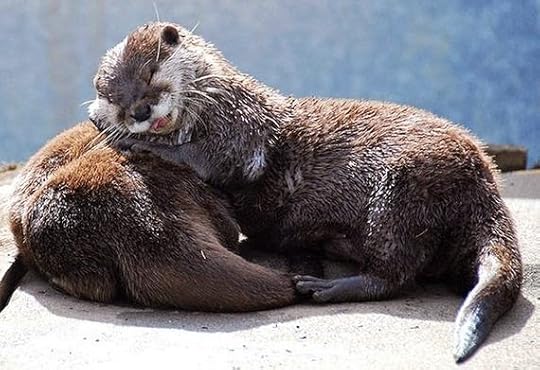
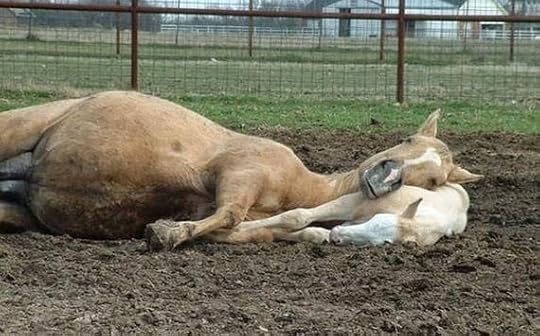








Clancy's comment: Wow! Pretty damn cute, eh?
I'm ...
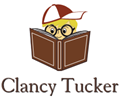
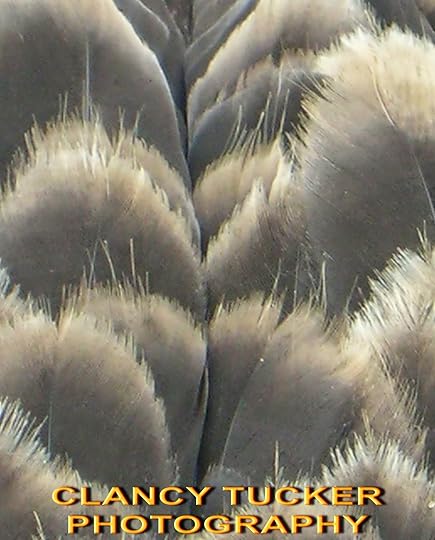
Published on April 19, 2015 04:00
April 18, 2015
19 April 2015 - ROY ORBISON
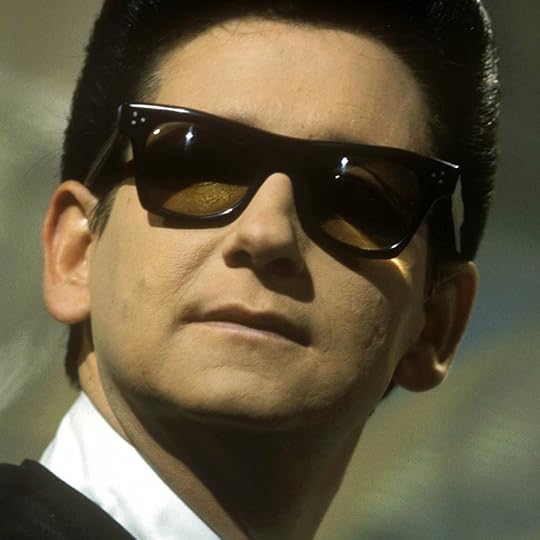
ROY ORBISON1936 - 1988
G'day folks,
Today, I feature one of my favourite singers. And, as I write this, he is singing in the background. Born on April 23, 1936, in Vernon, Texas, Roy Orbison formed his first band at age 13. The singer-songwriter dropped out of college to pursue music. He signed with Monument Records and recorded such ballads as "Only the Lonely" and "It's Over." Orbison was inducted into the Rock and Roll Hall of Fame in 1987. Nearly one year later, in December 1988, he died of a heart attack.Roy Kelton Orbison was born on April 23, 1936, in Vernon, Texas. A year before Beatlemania overtook the United States in 1964, the four lads from Liverpool invited Orbison to open for them on their English tour. On his first night, Orbison performed 14 encores before the Beatles even made it on stage.
Roy Orbison, who didn't have the Beatles' looks, Sinatra's swagger or Elvis's pelvis, was perhaps the most unlikely sex symbol of the 1960s. He dressed like an insurance salesman and was famously lifeless during his performances. "He never even twitched," recalled George Harrison, who was simultaneously awestruck and confounded by Orbison's stage presence. "He was like marble." What Orbison did have was one of the most distinctive, versatile and powerful voices in pop music. In the words of Elvis Presley, Orbison was simply "the greatest singer in the world."
Born to a working-class Texan family in 1936, Orbison grew up immersed in musical styles ranging from rockabilly and country to zydeco, Tex-Mex and the blues. His dad gave him a guitar for his sixth birthday and he wrote his first song, "A Vow of Love," when he was 8.
In high school, Orbison played the local circuit with a group called the Teen Kings. When their song "Ooby Dooby" came to the attention of Sam Phillips, the legendary producer at Sun Records, Orbison was invited to cut a few tracks. In addition to a highly collectible album called Roy Orbison at the Rockhouse, their collaboration yielded a re-recording of "Ooby Dooby" that became Orbison's first minor hit.
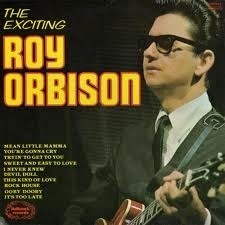
After Orbison landed a record deal with the Nashville-based label Monument in 1960, he began perfecting the sound that would define his career. His big break came after he tried to pitch his composition "Only the Lonely" to both Elvis Presley and the Everly Brothers, and was turned down by both. Deciding to record the song himself, Orbison used his vibrato voice and operatic style to create a recording unlike anything Americans had heard at the time. Reaching as high the No. 2 spot on the Billboard singles chart, "Only the Lonely" has since been deemed a pivotal force in the development of rock music.
Between 1960 and 1965, Orbison recorded nine Top 10 hits and another ten that broke into the Top 40. These included "Running Scared," "Crying," "It's Over" and "Oh, Pretty Woman," none of which adheres to a conventional song structure. When it came to composition, Orbison called himself "blessed ... with not knowing what was wrong or what was right." As he put it, "the structure sometimes has the chorus at the end of the song, and sometimes there is no chorus, it just goes ... But that's always after the fact—as I'm writing, it all sounds natural and in sequence to me."
As distinctive as his three-octave voice and unorthodox songwriting technique was Orbison's unglamorous style, which some have described as "geek chic." Stricken with both jaundice and bad eyesight as a child, Orbison had sallow skin and thick corrective eyewear, not to mention a shy demeanour. On a fateful day during his 1963 tour with the Beatles, Orbison left his glasses on the plane before a show, which forced him to wear his unsightly prescription sunglasses for that night's show. Although he considered the incident "embarrassing," the look became an instant trademark.
Orbison's unhip underdog look suited his music well, as his lyrics were marked by incredible vulnerability. At a time when rock music went hand-in-hand with confidence and machismo, Orbison dared to sing about insecurity, heartache and fear. His stage persona, which has been described as borderline masochistic, went a long way toward challenging the traditional ideal of aggressive masculinity in rock 'n' roll.
Although the first half of the 1960s saw the rise of Orbison's star, the second half of the decade brought harder times. Tragedy struck when Orbison's wife, Claudette, was killed in a motorcycle accident in 1966, and again when his two oldest sons died in a house fire in 1968. Following those incidents, a devastated Orbison failed to generate many hits—and with the rise of the psychedelic movement in rock 'n' roll, the market for rockabilly had all but dried up anyway.
Peter Lehman, director of the Department of Interdisciplinary Humanities at Arizona State University, said about that period, "I was living in New York between 1968 and 1971, and even in Manhattan I could not find a record store that bothered to stock one copy of a newly released Orbison album; I had to special order them." By the mid-1970s, Orbison stopped recording music altogether.
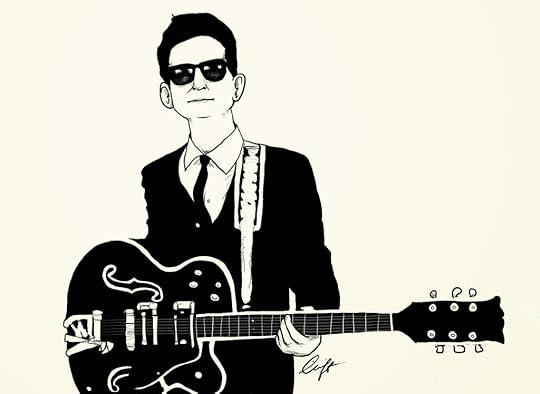
Last Years and Legacy
Orbison's returned to his musical career in 1980, however, when the Eagles invited him to join them on their "Hotel California" tour. That same year, he rekindled his relationship with country music fans by performing a memorable duet with Emmylou Harris on "That Lovin' You Feeling Again," which went on to win a Grammy Award. When Van Halen covered "Oh, Pretty Woman" in 1982, rock fans were reminded that gratitude for the song was owed to Orbison. By the late 1980s, Orbison had staged a successful comeback, joined the all-star supergroup The Traveling Wilburys (alongside Tom Petty, Bob Dylan and George Harrison) and been admitted to the Rock and Roll Hall of Fame.
Orbison died of a heart attack on December 6, 1988. His posthumously released comeback album, Mystery Girl, reached No. 5 on the charts, becoming the highest-charting solo album of his career. Although he was only 52 when he died, Orbison lived to see his rightful place in music history restored.
Despite his sales, charts and accolades, Orbison is most remembered today as an improbable rock star who put his heart on his sleeve and moved people with his music. "When you were trying to make a girl fall in love with you," Tom Waits once recalled, "it took roses, the Ferris wheel and Roy Orbison."
 Clancy's comment: Wow. Loved ya work, Roy. Still do. You're a legend.I'm ...
Clancy's comment: Wow. Loved ya work, Roy. Still do. You're a legend.I'm ...


R.I.P
Published on April 18, 2015 03:28
April 17, 2015
18 April 2015 - MAYA ANGELOU
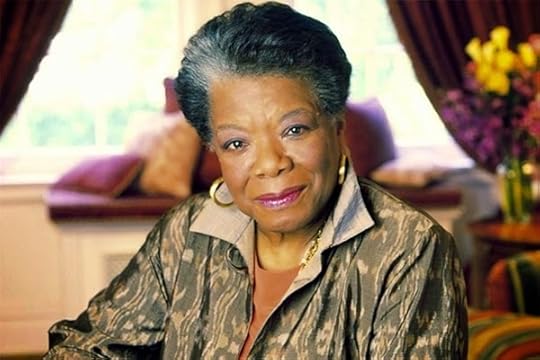
MAYA ANGELOU
G'day folks,
Welcome to some facts on an amazing civil rights activist - Maya Angelou.
(1928 -2014) – Modern American poet and writer. Maya Angelou is one of America’s leading female contemporary poets. Maya Angelou has also achieved much in the fields of theatre, acting, writing novels and also as a member of the Civil Rights movement. Maya Angelou (original name Marguerite Johnson) was born April 4, 1928 in St Louis, Missouri.
Maya Angelou had a turbulent childhood but she was able to retell her experiences with great poignancy and effect in her book “I know Why The Caged Bird Sings” (1969) This book is a collection of stories from her childhood and this book made her one of the first African – American Women to reach the best sellers list. “ I Know Why The Caged Bird Sings” was also nominated for the National Book Award.

Despite the inequities of life as a child, Maya Angelou has been able to provide a positive message of humanity and hope. Maya Angelou has said that “ The honorary duty of a human being is to love”
Maya Angelou married a South African freedom fighter and for a time lived in Cairo where she was the editor of the Arab Observer. However in the 1960s she returned to America and played a role in the civil rights movement. She has been asked to work on behalf of Presidents Carter (National Commission on the observance of International Women’s Year) and President Ford (American Revolutionary Bicentennial Advisory Council.
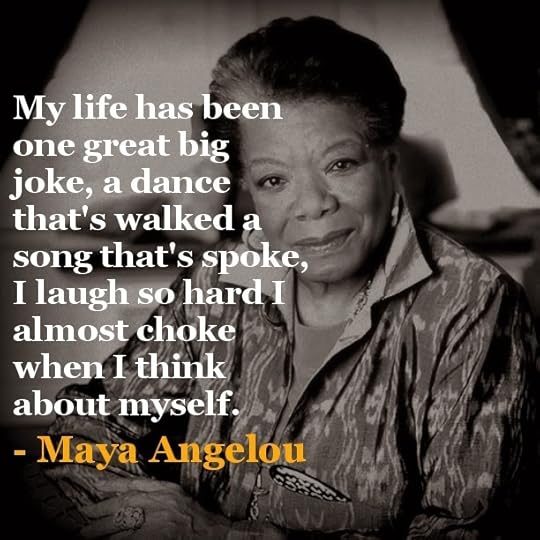
As well as a poet and writer Maya Angelou has had a productive career in TV and film. She has written several prize winning documentaries such as. “Afro – Americans in the Arts”.
The popularity of Maya Angelou has in large part been due to her ability to write about the many experiences of life with a vivid and engaging style that absorbs the reader. As Sidonie Ann Smith states from Southern Humanities Review.
In the 1960s, she was active in the civil rights movement, coming into contact with both Malcolm X and Martin Luther King. She was the northern leader for the Southern Christian Leadership Conference (SCLC). With Malcolm X, she helped to form the new Organization of African American Unity. She was devastated after both King and Malcolm X were assassinated in the late 1960s.

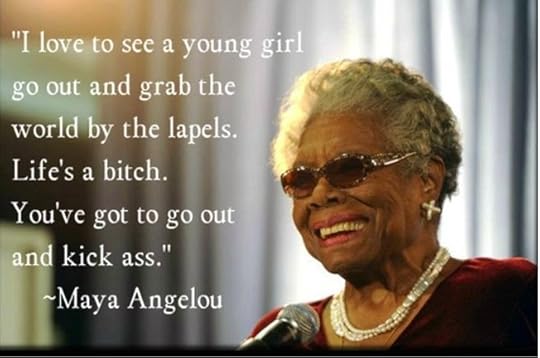
In the late 1960s, she published an influential autobiography, which spoke of her experiences growing up. ‘I Know Why the Caged Bird Sings‘ (1969). It is considered an important work for giving a personal voice to African American women. She went on to write seven autobiographical works.
She has also been active in film and television, Dr. Angelou wrote the Pulitzer winning screenplay and composed the score for the 1972 film Georgia, Georgia.
After reciting a poem ‘On the Pulse of the Morning‘ at Bill Clinton’s inauguration, she became one of the best known African American authors, and sales increased significantly. Her works have also received criticism for depicting sexually explicit scenes and violence. However, her books remain on many school syllabus’.
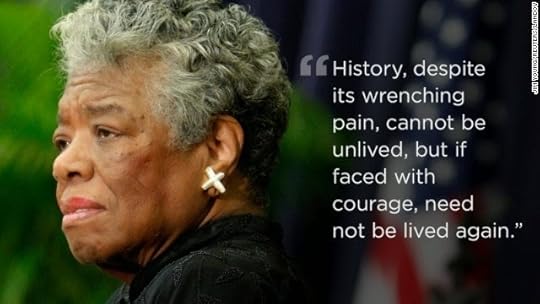
Dr. Angelou received over 50 honorary degrees and was for a time, Reynolds Professor of American Studies at Wake Forest University.
Dr. Maya Angelou passed quietly in her home on May 28, 2014
 Clancy's comment: I love reading about courageous women who were ahead of their time. Go, Maya!
Clancy's comment: I love reading about courageous women who were ahead of their time. Go, Maya!I'm ...



R.I.P
Published on April 17, 2015 03:32
April 16, 2015
17 April 2015 - GETTING OVER SPEAKER’S ANXIETY
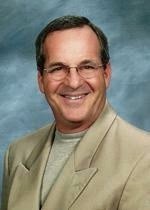
GETTING OVER SPEAKER’S ANXIETY
G’day folks,
Today, I present a subject that might interest you. This is a guest post from David Rosman. David is the winner of the Missouri Press Foundation's "Best Columnist" in 2013 and 2014. His is also an editor and award winning speaker. His newest book, "A Christian Nation? An examination of Christian nation theories and proofs", was released on December 15, 2011 as a paperback and eBook.
Welcome, David …
If you believe that professional speakers are not nervous when they step in front of a new audience, you are greatly mistaken. In fact, the fear of speaking in public is so great that some would rather have a tooth pulled – without Novocain – than to give a public speech.
Fear of speaking in public even has a name, Glossophobia.
To my knowledge, no one has ever died from giving a speech, barring the occasional assassination of political rabble-rousers. I did have one student faint in my class, a Marine Lance Corporal.
The general rule is that the audience members are glad it is you up there and not themselves.
The anxiety you have is natural and the physiology of what is happening is fairly simple to explain. You are entering the “Fight or Flight Mode.” You are exposing yourself to a group of people who will critique every aspect of your presentation, from your grammatical errors to the misspellings on your PowerPoint presentation. Adrenaline is flowing into your systems causing you to take shallow breaths and your body is getting ready to either battle or runaway. Blood is flowing to your core, thus the cold hands and feet, and turning stomach. Your muscles are tensing, thus your pain in the back or neck.
Most books and lectures spend little time on how to alleviate the turning stomach, the dry mouth, the sweaty hands and the shortness of breath. There are usually three suggestions: Practice, practice, practice. I agree with this bit of advice, but there are better ways to help focus that energy to your presentation. Here are a few.
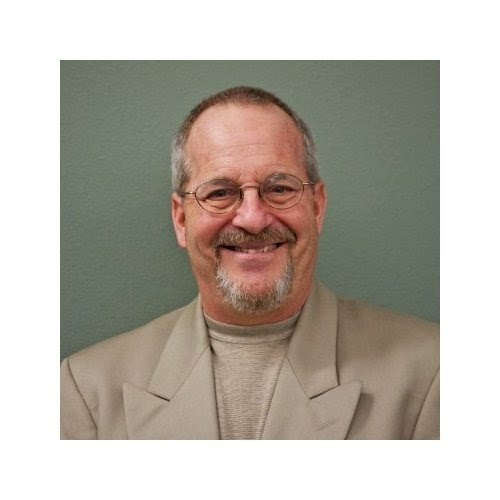
Psychocybernetics: This is using the art of visualization as a practice tool. Do not just practice your speech in front of a mirror. Close your eyes and visualize the audience. Visualize giving the prefect speech with the appropriate audience reactions. Do it over and over again, at least five times.
If you can “see” and “hear” the audience, your subconscious does not know if the experience is real or if it is Memorex. (A reference to an old television commercial.) In essence, you have given the speech five times already, so number six will be easier.
Get Set, Then Meet and Greet: Get to the speaking venue at least 30-minutes before the meeting begins. Get use to the room and where you are going to speak. Make sure the microphone and projector are working, and your PowerPoint is ready. Then introduce yourself to individual attendees. Focus on a few individuals, their names and short stories. It is easier to give a speech to people you know than total strangers.
(This leads to another “trick” in winning the audience’s approval, which I will discuss in another posting.)
Take a Breath and Step In: When you first stand in front of the audience, step back, take a deep breath and let it go, step forward and open your presentation. Do not hesitate. It is much like an Olympic ten-meter platform diver. They stop, take a deep breath and let it out, and then step into the dive. Golfers do something similar. They stand behind the golf ball, visualizing where the ball should go, take a deep breath, let it out and approach the ball.
Step Back, Step In and Go: Even if you are reading your script, you will occasionally get lost or forget what comes next. There are two tricks to use to get around the embarrassment.
First, underline or highlight key words in your script or use a Key Word Outline. When you get lost, step back, find a key word, any key word, and step forward and restart your speech from there. Few, if any, will know that you skipped a section.
The Linus Blanket – You remember Linus from the Charlie Brown comic strips. He is always carrying his blanket for security. You can do the same, but without the blanket. I usually suggest that you bring a glass of water to the lectern or placed on a table where you are presenting. I sometimes suggest that you bring your personal glass or mug. Two things are happening here.First, this is something you are familiar with and increasing the comfort level. In fact, you should practice with your glass close by.
Second, if you get lost, stop, take a sip of water, find your key word and go. The audience will not know if you have a dry throat, are nervous, lost your place or have a natural stopping point in your presentation.
Talk to a Few: It is easier to talk to three people than 30. Choose three people in the audience with “kind faces;” one in the front row, one center and one in the back of the audience. Make sure one is on the right side of the venue, one on the left and one center. Focus on these three individuals during the speech. It will look like you are scanning the audience when you are only “seeing” three faces.
These are only some of the “Rules” you need to know to make your presentation more professional.
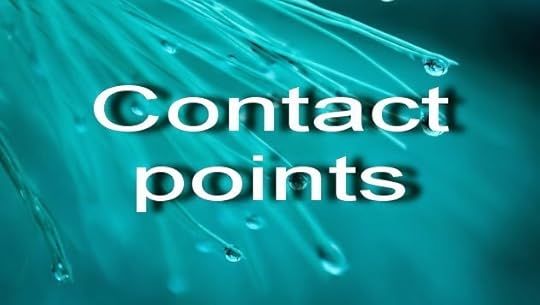
http://inkandvoice.com/
For more information or assistance in designing your next presentation, contact David Rosman and InkandVoice Communication at 573-999-0982, or write us at Dave@InkandVoice.com.

Clancy's comment: Thank you, David. There are some great points here. There is one extra point I always try to add to any public speaking, whether it be a wedding or funeral. Initially, I try to make people laugh. Then, you have their undivided attention. What's next? Say what you have to say as smoothly and clearly as possible and sit down. Don't drone on.
I'm ...

Think about this!
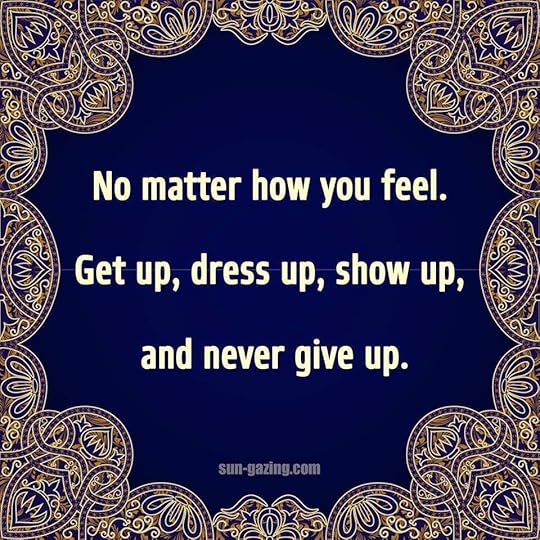
Published on April 16, 2015 03:37
April 15, 2015
16 April 2015 - STEFAN VUCAK - Guest Editor
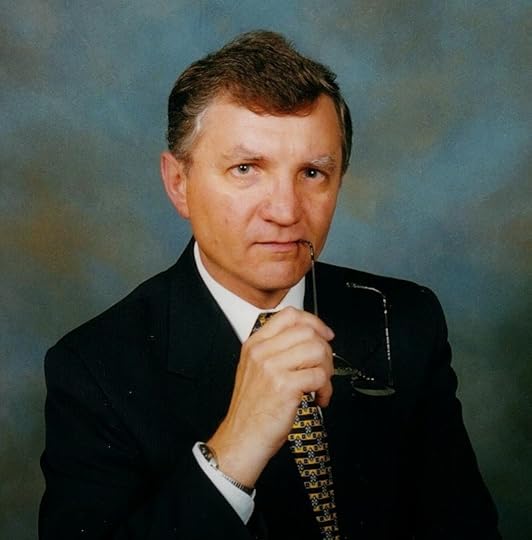
STEFAN VUCAK
- Guest Editor -
G'day folks,
Today, I present a very clever editor who knows a lot about presentation. Stefan has previously appeared on this blog as an author, but today he is my guest editor. Stefan Vucak has written eight Shadow Gods saga sci-fi novels, which includes With Shadow and Thunder , a 2002 EPPIE finalist. His political thriller Cry of Eagles won the coveted 2011 Readers’ Favorite silver medal, and his All the Evils was the 2013 prestigious Eric Hoffer contest finalist and Readers’ Favorite silver medal winner. Strike for Honor won the gold medal.
Stefan leveraged a successful career in the Information Technology industry and applied that discipline to create realistic storylines for his books. When not writing, he is an editor and book reviewer. He lives in Melbourne, Australia.
Welcome, Stefan ...
1. TELL US A LITTLE ABOUT YOURSELF AND YOUR BOOK-EDITING JOURNEY.
As a kid, I liked doing things all other kids liked doing – stopping my parents from finding things out – until I discovered books. After that, I was gone, lost in universes those books opened for me and dreaming of writing my own novel. I had a great time at school, even though English and its convoluted grammar rules did give me some trouble, but those rules gave me a grounding how to write. My first effort was pretty awful and I am glad it will never see the light of day. The thing went through two rewrites, but it still isn’t something I want to share. Call it my training wheels.
My first successful book, although not perfect, a science fiction work, was presentable enough to win an award, and I tried for a long time to break into the traditional publishing market while holding down a demanding job in the IT industry. But writing has always been a passion and a drive, and I kept at it in my spare time. When e-book publishing took off, I had a chance to get my books to readers. These days, I am no longer in the IT industry and I spend my time writing, reviewing and being a hardnosed editor. It hasn’t been a bad journey, enabling me to produce eight sci-fi books and five political drama/thriller novels. As long as that fire of creation burns within me, I will keep writing.
My metamorphosis into a book editor evolved from a stark necessity to edit my own work. After sending material to so-called professional editors – and paying them for their work – only to find lots of unresolved bloopers, it became obvious that I needed to learn the trade myself. I read somewhere that every writer must learn to become his own worst editor, and I firmly believe in that maxim. The golden days of publishing where an author can expect the publishing house to do all the editing are long gone. Today, publishers and readers expect perfection, and rightly so! Unfortunately, with the advent of easy self-publishing options, I have seen lots of books that should never have seen the light of day.
Building on my own experience, I compiled a book of essays which I hope will help fellow writers overcome some of the problems I went through.
Writing Tips for Authors
http://stefanvucak.com/books/writing-tips-for-authors-2/
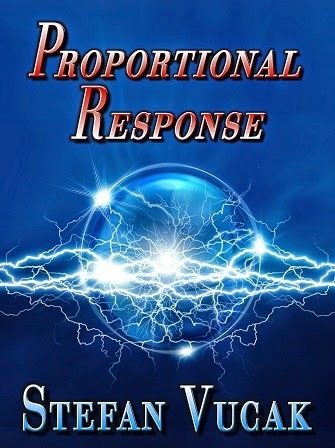
2. WERE YOU A GOOD READER AS A KID?
I was an avid reader. I remember picking up an illustrated copy of 20,000 Leagues Under the Sea by Jules Verne. When I discovered a city library on the corner from my primary school, I was hooked. I used to bring books home and read – at the expense of doing my homework, which didn’t go down well with my mother, who had to give me physical stimulation to get me focused on schoolwork. I read across many genres, and much of what I read has stuck with me today, enriching me and showing me a world beyond my immediate neighbourhood I never knew existed. That passion to read has never left me, and I hope it never will.
3. WHEN AND HOW DID YOU BECOME A BOOK EDITOR?
After I thought I had the basic editing craft mastered fairly well – there is alwaysroom for improvement – I approached my first e-book publisher offering to be a submissions editor. That meant reading a book and providing feedback on its suitability for publishing. That led to actually edit accepted manuscripts. As I changed my publishers, I made the same offer, expanding my skills all the time. At some point, I decided to branch out, offering my services directly to writers, using social media outlets to promote myself. As expected, some books are very well written and my editing relatively stress free, but too often, manuscripts need a lot of work to bend them into shape suitable to unleash on unsuspecting readers. However, that’s part of being a professional editor. If an author wishes his or her book edited and is happy for me to do the work, I always give them my unreserved best.
4. WHY A BOOK EDITOR?
I guess it was a natural evolution. I had to learn the editing craft to edit my own books, which led to the desire to offer my skills to other writers who may not have fully developed their editing skills. After going over some of my early novels, I am still finding bloopers I left behind, or past editors left behind. As I have found, a book is never fully edited. However, a point of diminishing returns is reached when polishing the book further simply isn’t worth the effort.
Even though I consider myself a fairly good editor, when I finish a book to a point where I think it is ready for publication, I always send it to another editor to proofread, not edit. After staring at the damned manuscript for perhaps nine months or so, it is amazing how the brain can trick you, inserting automatic corrections. That is why it is important to have someone else look at my book – and so should every writer.
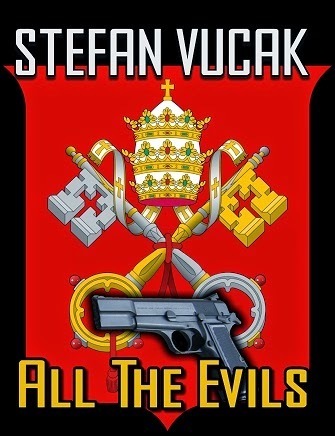
5. WHAT DO YOU ENJOY MOST ABOUT BEING AN EDITOR?
Apart from being exposed to a new story, a new adventure, or explore a non-fiction work that gives me information I may not have had, I guess the most enjoyable part of being an editor is the satisfaction of knowing the author will have a better product to present to his or her readers as a result of what I do to their manuscript. As part of the editing process, I not only provide obvious mechanical corrections to grammar and syntax covered by the editing agreement, I also include comments on story structure, plotting, characterization, and suggestions for the author to consider. I never rewrite passages, although I do so for sentences. I am a firm believer that the manuscript is the product of the writer, and it is not up to me to force my own style or point of view on the manuscript. I may not necessarily like what the author has written, but that does not interfere with my effort to provide the author with a professional service.
6. WHAT IS THE HARDEST THING ABOUT YOUR JOB?
The difficulty being an editor is telling an author the manuscript cannot be salvaged without extensive rewriting. I hate doing that, knowing what effort every writer puts into his or her creation – having gone through that myself. When I encounter such a manuscript, I don’t have to edit the whole thing to know it needs extensive rework to make it suitable for publication. I can tell within the first five to ten pages, and that is how I price my work. Some manuscripts I accepted were tough and required a lot of work on my part, but that is what I signed up for. During the editing process, I involve the author, requiring him or her to participate, the experience hopefully developing the author’s writing and self-editing skills.

7. WHAT WERE YOU IN A PAST LIFE, BEFORE YOU BECAME AN EDITOR?
Hah, that’s easy! I was a writer, of course, and still am, having produced eight hard science fiction novels and five contemporary political drama books, most of them winning awards. Ever since I started reading, I wanted to write. It didn’t seem all that hard...until I tried it myself. I wrote a number of short stories before tackling a full length novel, those stories acting as my training ground – as did that first novel.
But I didn’t start writing seriously until I finished university. Even then, I had to take snatches of time to write, having to hold down a job in the IT industry that provided me the means to live. During my professional working career, I managed to produce seven sci-fi books in the Shadow Gods Saga series. However, the passion to write never left me, and as that passion grew, I reached a point where I could retire from full-time work and devote all my time to writing, editing, and book reviewing.
8. WHAT GENRE’ DO YOU PREFER TO EDIT? WHY?
With the exception of romance and children’s books, I am prepared to edit a work in any genre. I don’t specialize, believing that exposure to a broad range of books will expand my experience and knowledge, which I found comes handy writing my own books. Of course, editing a non-fiction work can be tough and takes a different approach when editing fiction. In non-fiction, whatever ‘facts’ the author presents need to be verified, and it is surprising how many times writers don’t do their research, making me wince at an obvious error. Still, that’s how things go.
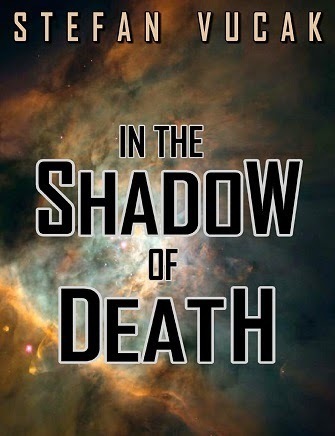
9. DO YOU HAVE ANY TIPS FOR NEW WRITERS?
If there is one thing I learned over the years as a writer, if anyone is contemplating taking this on seriously, he or she should be prepared to spend many lonely hours with a pencil and paper, and sitting behind a computer screen. There will be disappointments, frustration, angst...and moments of sheer exhilaration and satisfaction when the words flow and the creative process produces something wonderful. Writing is a gift, but it can also be a curse. But once bitten with the urge to create, there is no cure.
Of course, there is always the challenge to master the technical basics of writing, something that many self-published writers have ignored. In my view, it is a matter of taking professional pride in producing the best novel an author can deliver, while employing a disciplined approach to writing. An engineer uses a set of tools in his profession to perform his work. A writer also has a set of tools: the English language. That tool must be mastered if an author wishes to consider himself or herself a professional. Anything less, in my opinion, is letting down the readers.
10. DO YOU HAVE A PREFERRED TIME TO EDIT?
It all depends on what I am engaged in. At times my own writing will keep me fairly busy, not giving me an opportunity to edit someone else’s book. However, there are times when I need a break from my writing and am happy to tackle an editing assignment. Once I do get an editing job, I devote all the time necessary to complete it within the agreed timeframe – or sooner. I am fastidious about this. Having had editors procrastinate on my books is frustrating, and is something I never put my clients through. As to when I edit? It can be any time of the day. It all depends on what commitments I have on that day. Generally, though, I prefer to work in the morning. I try to avoid editing in the afternoon and at night after having had a full day. It is not a hard rule, and I do edit at night sometimes.

11. WHAT’S THE GREATEST COMPLIMENT YOU EVER RECEIVED FROM A WRITER?
Not all comments I received were complimentary! However, when an author tells me what I have done to the manuscript really made it more presentable, and my comments helped to address a particular problem or problems; that is satisfying. It is an acknowledgment that what I am doing does make a difference, which is one of the objectives of being an editor.
12. DO SOME OF YOUR CLIENTS FRUSTRATE YOU?
Of course, there is always an author who thinks the book ‘only needs a quick proofread’, unaware of the minefield awaiting his or her innocent reader. Pointing out what are sometimes obvious grammar and punctuation errors comes as a rude shock to the author, and not always appreciated. Problems usually surface with writers who are too attached to their work, believing the book is perfect. When problems are pointed out, some react negatively, denying there are problems, insisting I am forcing my own style on their precious book. When that happens, I don’t take it personally. I give every author my professional output. It is up to him or her to accept or reject what I have done.
13. WRITERS ARE SOMETIMES INFLUENCED BY THINGS THAT HAPPEN IN THEIR OWN LIVES. ARE YOU AS AN EDITOR?
Every individual is a tapestry of experiences and knowledge accumulated over a lifetime, whether short or long. These cannot help but influence an individual’s behaviour and approach to any task. However, when I put on my editor hat, I use my accumulated experience to do the best editing job I can for the author. They deserve nothing else from me. The principle I work with when editing is that I am completely impartial. I am an editor, a second pair of eyes for the author helping to polish a book. Whatever personal views I might have are provided as comments for the author to apply or reject as he or she sees fit.
14. OTHER THAN EDITING, WHAT ELSE DO YOU LOVE?
Well, when not writing, I do book reviews. That can be an exercise in frustration, as many books out there, especially those self-published, should never have surfaced. But when I come across a well written novel with a great plot and characterization, it makes up for all those others. I play golf, still mastering the art of making that little white sucker go where I want it to, but I am getting better at it. Of course, when I am not doing anything else, I like to read or watch a good movie.
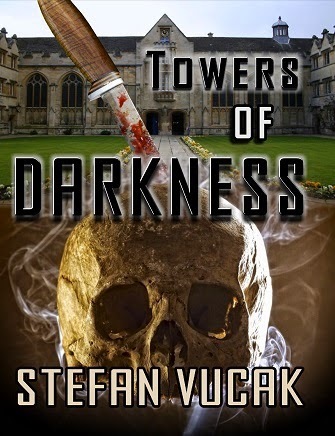
15. ARE SOME MANUSCRIPTS DIFFICULT TO REVIEW? WHY?
Some manuscripts are difficult to proofread or edit. An author may want me to only proofread a manuscript, which I am happy to do. However, with some of those, I identify enough grammar, plot, characterization, or other problems, that I am forced to recommend to the author to have the manuscript fully edited. I hate doing that, as the author may suspect I am doing this simply to get more money out of him or her. That can happen with some editors, of course. It happened to me more than once. However, when I make such a recommendation, I provide direct evidence to the author why a full edit would benefit the work, then leave the final decision to the author.
As I mentioned before, I can tell within the first five or ten pages the degree of work involved editing a particular manuscript, and I provide a sample edit to back up my quote. I don’t shy away from tackling a difficult – not well written – manuscript. However, the quote I provide to the author reflects the degree of that difficulty. It is up to the author to accept or reject my quote. Of course, after progressing through a manuscript, I might find problems that make the editing job much more challenging. When that happens, I always comment to the author, giving him or her options how that problem or problems could be resolved. I don’t rewrite, something that is always outside the scope of being an editor.
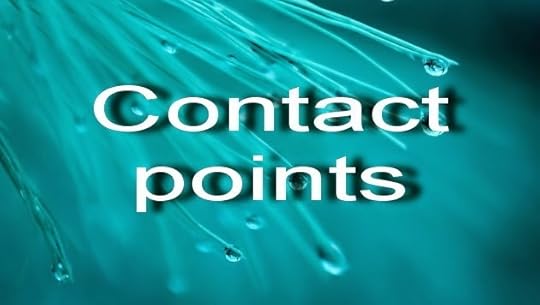
See the Services page of my website for further information:
http://stefanvucak.com/services/
STEFAN VUCAK
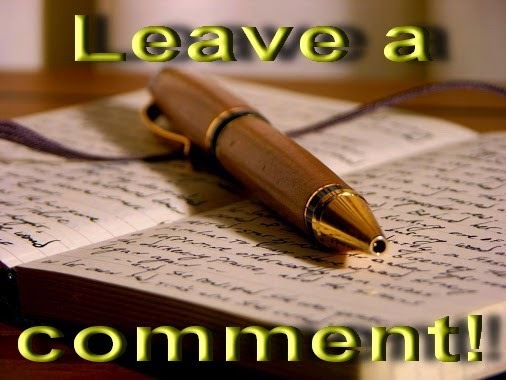
Clancy's comment: Thank you, Stefan. Folks, I can highly recommend this man. I have utilised his services and found him to be very professional and most capable. Stefan's knowledge of computers, and what they can do, is extraordinary. So, if you are seeking a good editor, or someone to prepare your books for e-Books, contact him.
I'm ...
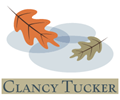
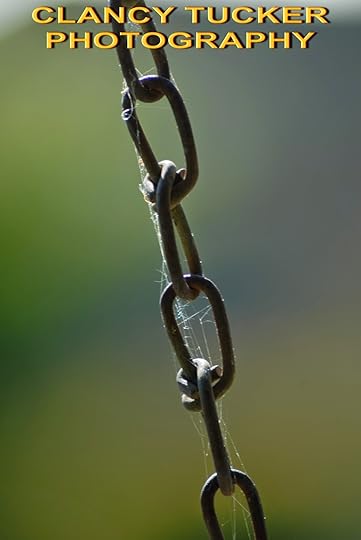
Published on April 15, 2015 04:33
April 14, 2015
15 April 2015 - TOP SHOTS
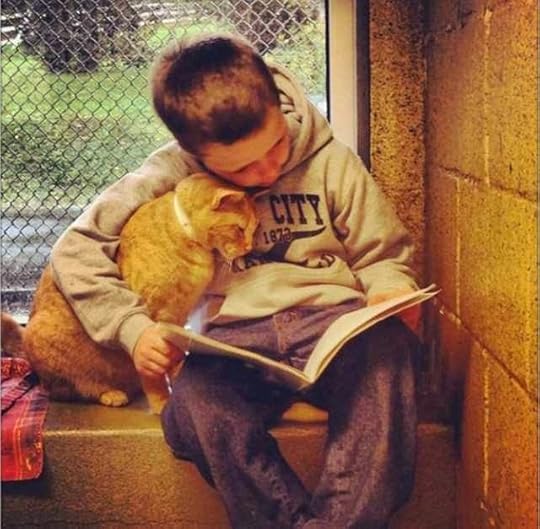
TOP SHOTS
G'day folks,
Time to check out some great photography.
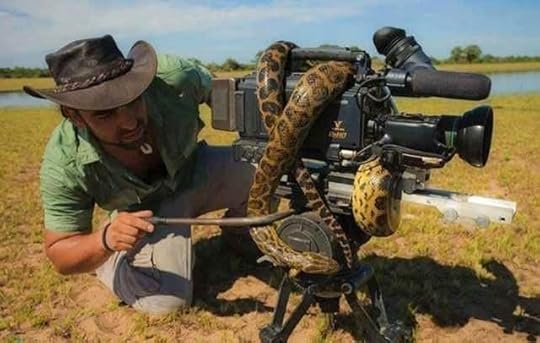












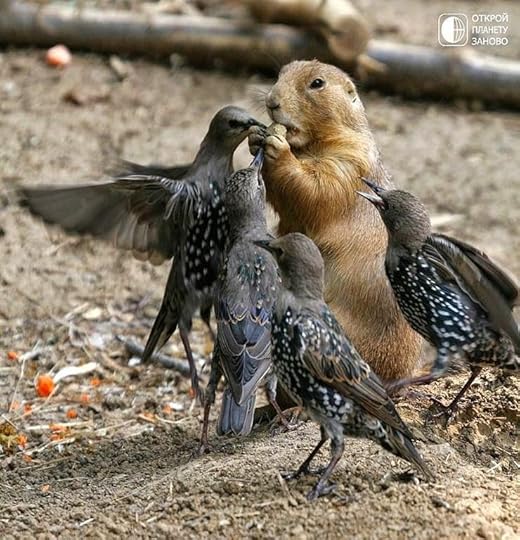


Clancy's comment: Brilliant, eh? Yep, it's all about perception and timing.
I'm ...
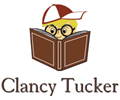

Published on April 14, 2015 05:14
April 13, 2015
14 April 2015 - QUOTES FROM GREAT WRITERS

QUOTES FROM GREAT WRITERS
G'day folks,
Time for some more brilliant quotes from famous authors.
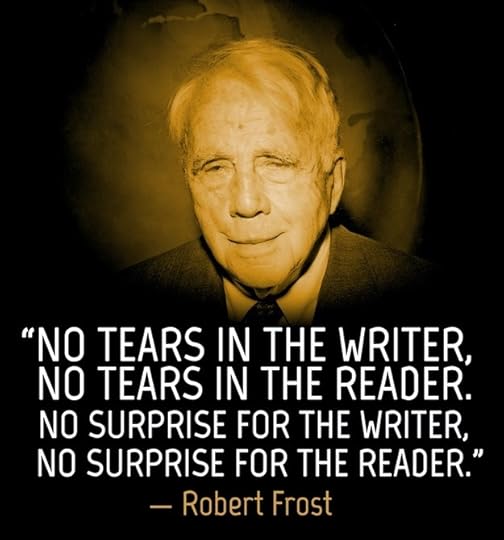

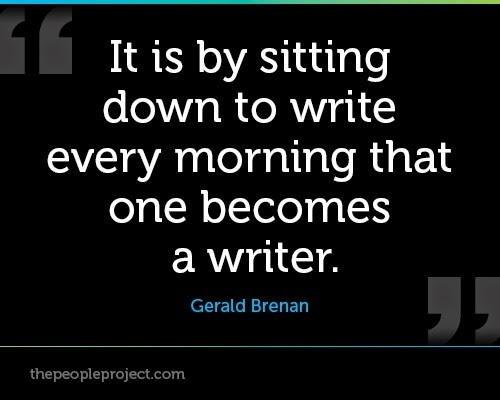
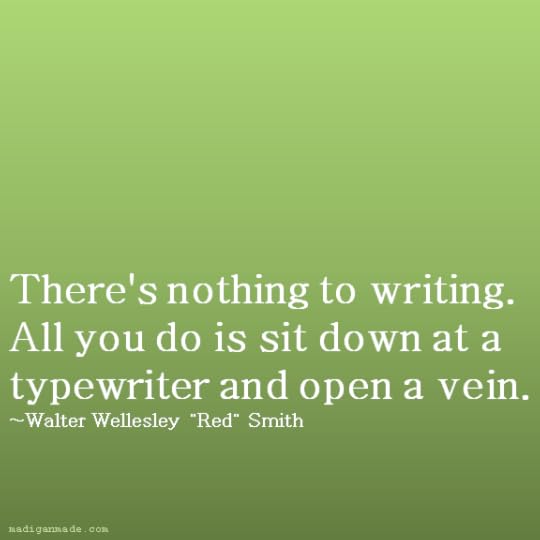
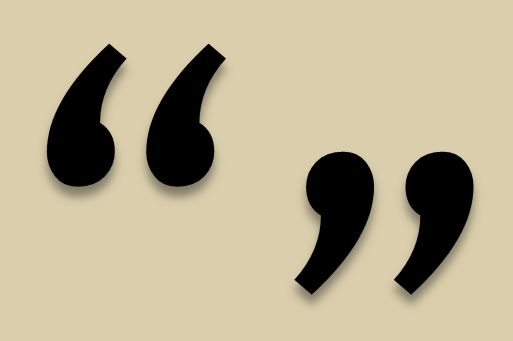


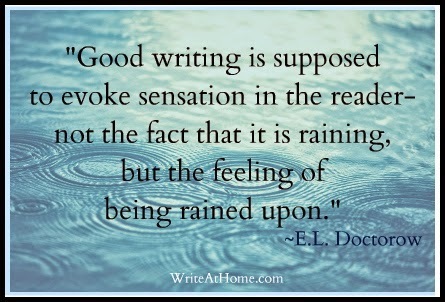


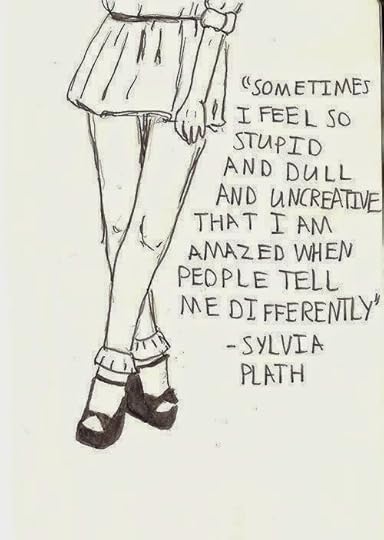
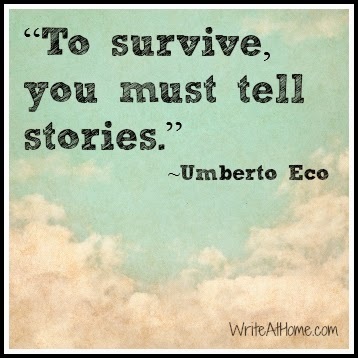
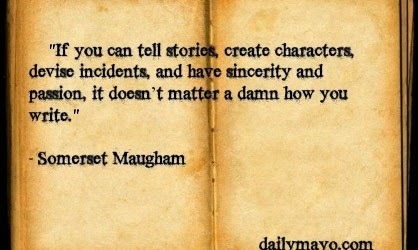
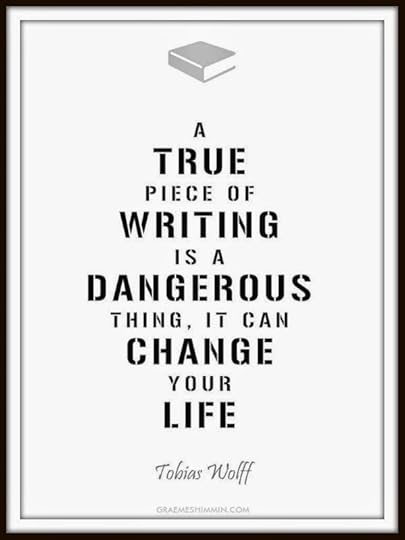
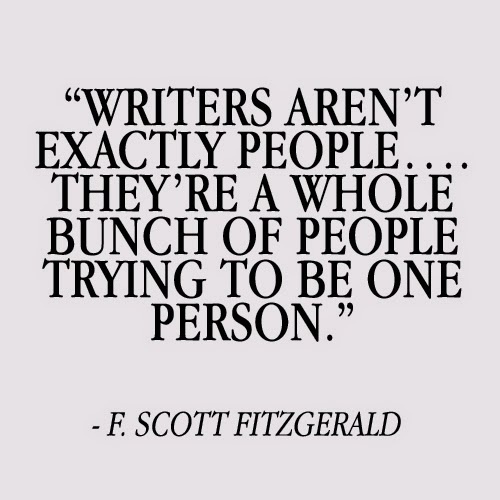
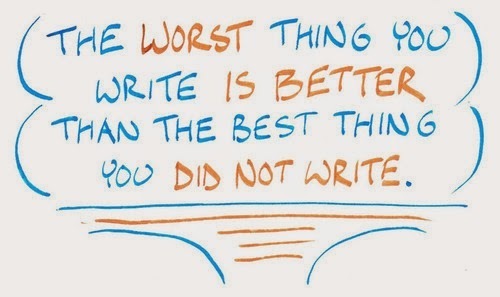
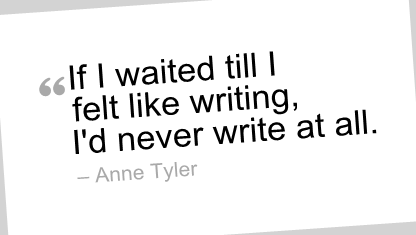
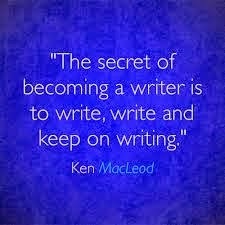
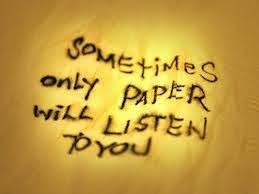

Clancy's comment: Mm ... Many of these sound like comments one would hear at a frustrated writer's group therapy session.
I'm ...


Published on April 13, 2015 03:51



